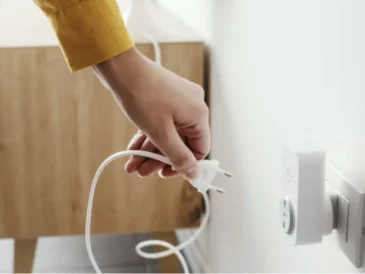Man’s Best Friend—and Best Judge?
If you’re a dog lover, you’ve probably heard someone say, “Trust a dog’s instincts—they know who’s good and who’s not.” 🐶
But is it true? Can dogs really sense if a person is kind, trustworthy, or even dangerous? The answer, according to science and centuries of observation, is a resounding yes. Dogs have an amazing ability to read human behavior, body language, and even subtle emotional cues.
Let’s dive deep into how our furry friends manage to do what humans often can’t—judge character accurately!
How Dogs Judge a Person: The Hidden Powers at Play
✅ 1. They Read Body Language Instantly
Dogs are masters of body language. Even the tiniest change—like stiff shoulders, nervous fidgeting, or an aggressive posture—doesn’t escape their notice.
- Friendly gestures (relaxed stance, open hands, smiling) = Positive reaction 🐕❤️
- Aggressive or fearful body language (tensed muscles, clenched fists) = Defensive or wary reaction 🐕🚫
Dogs constantly observe how you carry yourself—and their reaction is almost immediate!
✅ 2. They Sense Your Tone of Voice
It’s not just what you say, but how you say it. Dogs are very sensitive to:
- Pitch (higher pitches usually mean friendliness)
- Volume (loud voices can seem threatening)
- Tone (calm versus aggressive tones)
Even if someone says kind words but with a tense or aggressive tone, dogs pick up on that inconsistency.
3. They Smell Emotions
Here’s where it gets really amazing: Dogs smell emotions! 🐽
Dogs have up to 300 million olfactory receptors in their noses (compared to about 6 million in humans). They can detect chemical changes in your body when you’re:
- Happy (release of dopamine and endorphins)
- Fearful (release of adrenaline and cortisol)
- Angry (different scent signatures)
So even if someone hides their emotions outwardly, their scent gives them away, and dogs are quick to notice!
✅ 4. They Watch How You Treat Others
Dogs are incredibly observant about social interactions. Studies show that if a person:
- Treats their owner with kindness and respect ➔ Dogs respond positively.
- Yells at or mistreats their owner ➔ Dogs become suspicious or hostile.
Dogs seem to judge not only how a person treats them but also how they treat others—proving they understand social fairness to some degree. 📚🐾
Science Behind Dogs Detecting “Good” or “Bad” People
A study published in “Neuroscience and Biobehavioral Reviews” found that dogs exhibit “emotional contagion”—they can mirror and absorb the emotions of the humans around them.
Another 2017 Japanese study showed that dogs were less likely to accept treats from people who had been rude to their owners. In other words: Dogs don’t just sense; they judge!
This combination of smell, sight, sound, and learned behavior gives them a highly accurate “gut feeling” about people.
⚡ Key Signs a Dog Doesn’t Trust Someone
Watch for these behaviors:
Watch for these behaviors:
- Growling or low grumbling
- Hiding behind their owner
- Barking or excessive alertness
- Tail tucked between legs
- Reluctance to approach
On the flip side, if a dog wags their tail, has relaxed body posture, and approaches someone confidently, it’s a sign they feel safe and positive about that person. 🐕💕
Real-Life Stories That Prove It
There are countless stories of dogs:
- Refusing to go near abusive individuals
- Saving owners from potentially dangerous strangers
- Instinctively protecting children from harmful adults
Many police departments even rely on canine units not only for scent detection but also for behavioral observation during investigations.
✅ How You Can Win a Dog’s Trust Quickly
If you want to make a good impression:
- Approach slowly and calmly.
- Let the dog come to you instead of reaching for them.
- Speak in a soft, positive voice.
- Avoid direct eye contact initially (it can feel threatening).
- Offer your hand for sniffing before petting.
Dogs appreciate respect, patience, and authenticity—just like people do!
Conclusion: Trust the Dog’s Judgment
While humans can be misled by appearances, words, or manipulation, dogs rely on pure instinct—and it almost never fails them. 🧠🐾
So next time your dog seems uneasy around someone, pay attention. They may be sensing something you can’t see.
After all, dogs aren’t just our loyal companions; they’re also our natural protectors and emotional guides. ❤️🐶
🙋 FAQs
Q1: Can a dog misjudge a person?
Sometimes, especially if the dog has past trauma, but usually their instincts are surprisingly accurate.
Q2: Are certain breeds better at detecting bad people?
While every dog can sense emotions, working breeds (like German Shepherds, Belgian Malinois) tend to be even more sensitive.
Q3: Can a dog’s judgment improve with training?
Absolutely! Proper socialization and positive reinforcement can sharpen their social sensing skills.
Q4: Why does my dog like some strangers immediately and distrust others?
They are picking up subtle cues in body language, scent, or emotional energy that humans miss.
Q5: Can I trust my dog’s instincts if they warn me about someone?
In many cases, yes. It’s wise to stay alert when your dog signals discomfort around a new person.





